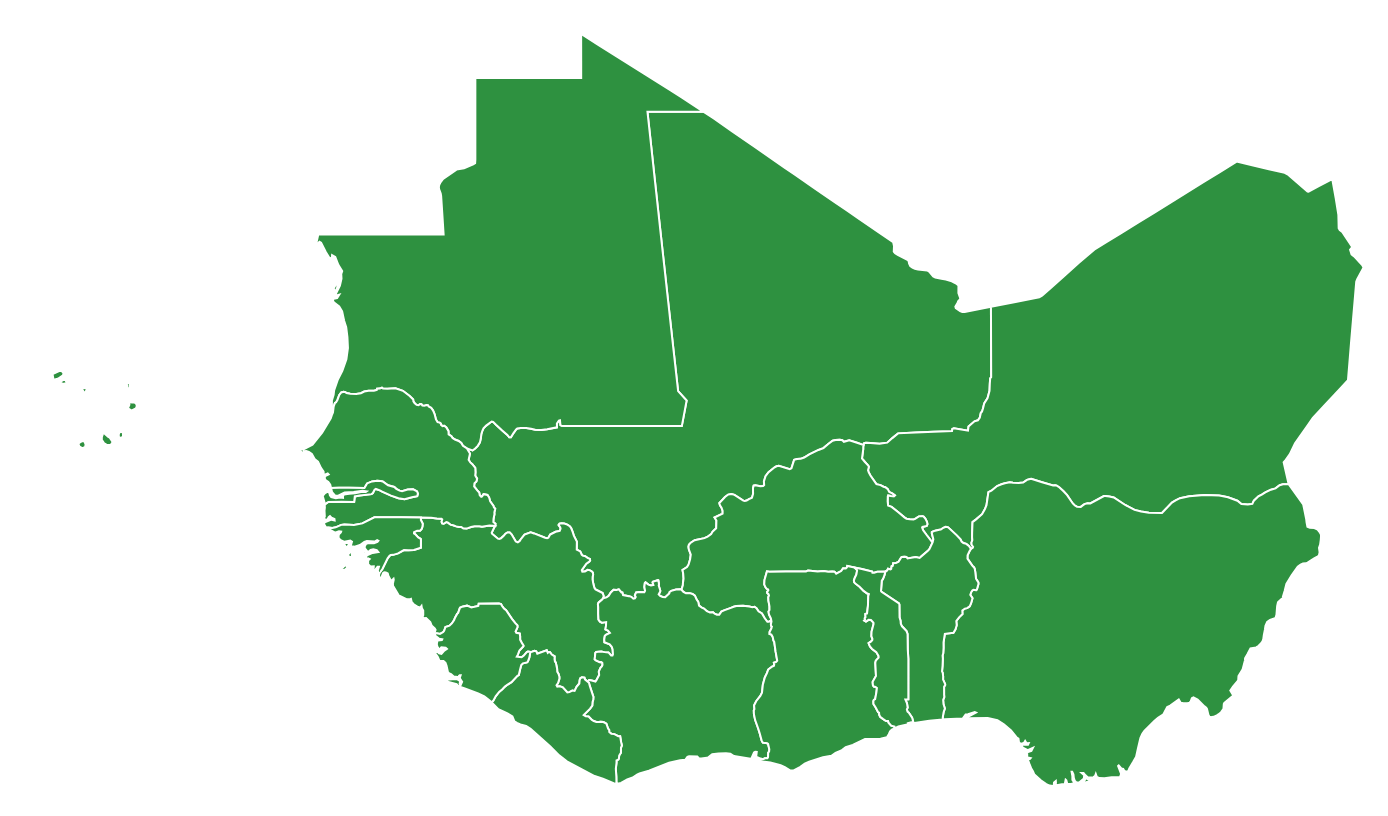West Africa

Carbon Pricing
Carbon pricing in West Africa is gaining momentum as countries in the region recognize its potential to incentivize emissions reductions and drive investments in low-carbon technologies. Efforts are underway to establish effective carbon pricing mechanisms tailored to the unique socioeconomic and environmental context of West Africa. Two countries, Senegal and Nigeria are currently considering carbon pricing instruments to address pressing environmental challenges while simultaneously fostering sustainable economic growth. By implementing carbon pricing mechanisms, both countries aim to attract green investments, promote renewable energy adoption, and mitigate the adverse effects of climate change on their populations and ecosystems.
Information on carbon credit pricing can be found here on websites such as MSCI and Sylvera.
Carbon Markets
As of May 14th, 2024, there are 303 registered carbon market activities in West Africa, with 22 percent of them having issued carbon credits the CDM and 78 percent under voluntary standards.This includes both stand-alone projects and individual CPAs/VPAs included in Programmes of Activities (PoA) Nigeria has the largest share of active activities, with 122 activities to date consisting of decentralised, small-scale activities mainly in the efficient cookstove space. Nigeria and Senegal follow with 23 activities registered each, similarly dominated by decentralised, household-level interventions.
The West Africa region hosts less than 1 percent of all registered CDM activities, and around 2.5 percent of all registered global VCM activities hosted under the Gold Standard and Verra.
Pipeline
Article 6
West African countries are committed to engaging with Article 6, leveraging their experience with the CDM under the Kyoto Protocol.
Download Article 6 Activity PortfolioData
CDM
West Africa engaged with the Clean Development Mechanism, with a total of 76 CDM activities (68 registered and 8 under validation).
For more information on all CDM activities please download the Database for PAs and PoAs.
CDM issuances in West African Alliance countries
As of December 31st, 2021, 9078.53 kt of carbon credits have been issued from CDM activities in West African Alliance countries. Household projects are the leading CDM activity in issuances of carbon credits, with a total of 4219.52 kt, followed by Gas recovery projects with 2306 kt.
1970201020112012201320142015201620172018201920202021202220232024020040060080010001200
WasteRENBSHouseholdGas recoveryEnergy (Non-renewable)CDM issuances in West African Alliance countriesCredits (kt)Source: Climate Focus, 2024
CDM Voluntary Cancellations in West African Alliance countries
As of December 31st, 2021, 546.7 kt of carbon credits have been cancelled from CDM activities in West African Alliance countries. Household projects are the leading CDM activity in voluntary cancellations, with a total of 430.72 kt, followed by RE projects with 60 kt.
20112012201320142015201620172018201920202021202220232024050100150200250300350
RENBSHouseholdCDM Voluntary Cancellations in West African Alliance countriesCredits (kt)Source: Climate Focus, 2024
Voluntary Carbon Market
West Africa engaged with the Voluntary Carbon Market, with a total of 352 VCM activities (235 registered and 117 under validation).
West Africa’s engagement in the voluntary carbon market reflects a growing recognition of the region’s potential to contribute to global climate action.
Download VCM Activity PortfolioData
As of September 6th, 2024, 36832.05 kt of carbon credits have been issued from VCM activities in West African Alliance countries.
Household projects are the leading VCM activity in issuances of carbon credits, with a total of 23170.03 kt, followed by RE projects with 7701 kt.
As of September 6th, 2024, 18823.13 kt of carbon credits have been retired from VCM activities in West African Alliance countries.
Household projects are the leading VCM activity in retired credits, with a total of 13938.3 kt, followed by NBS projects with 3307 kt.
